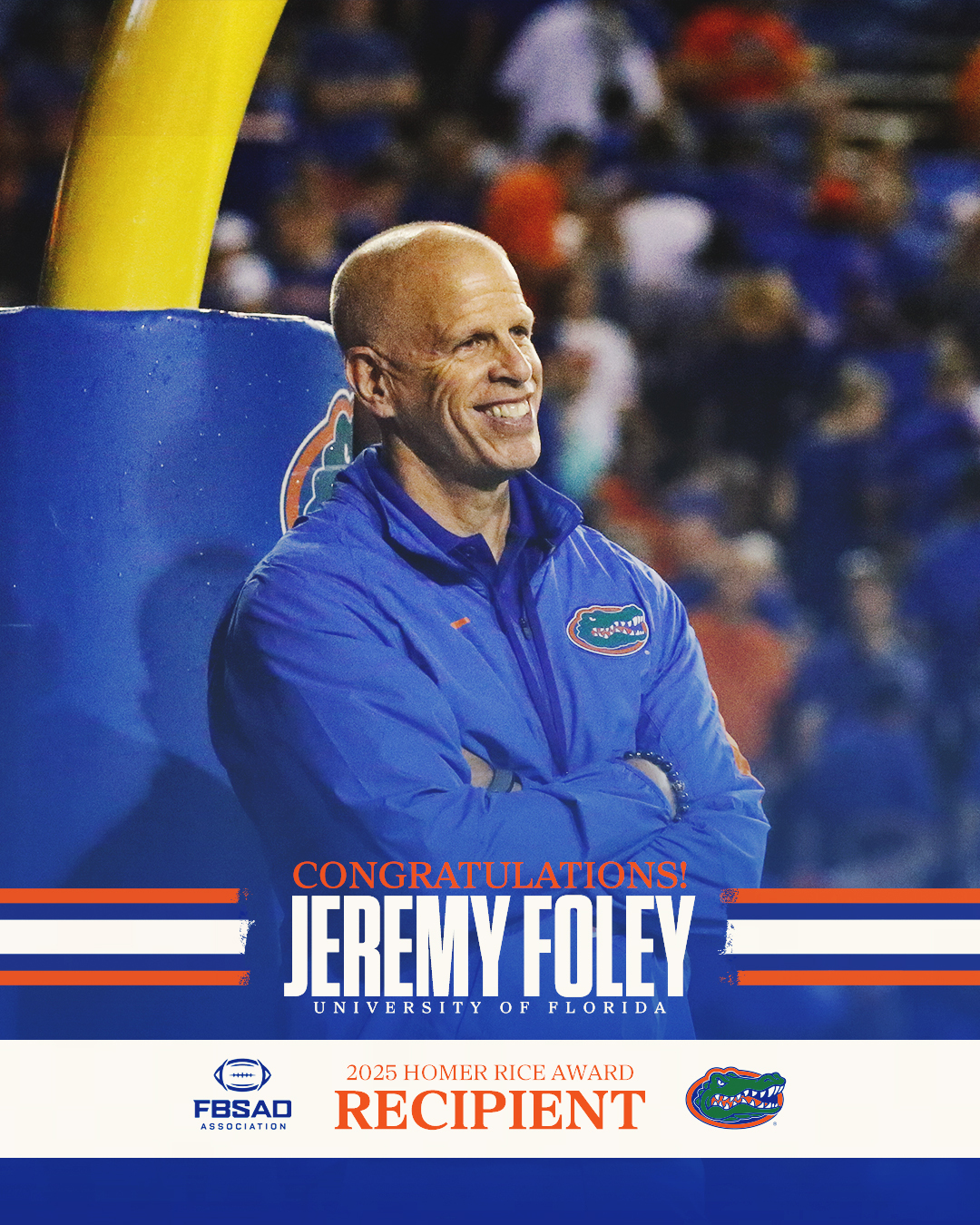LEGEND HONORED: Former Florida AD Jeremy Foley Named 2025 Homer Rice Award Recipient in Recognition of Transformational Legacy in College Athletics
The announcement that former University of Florida Athletic Director Jeremy Foley has been named the 2025 recipient of the prestigious Homer Rice Award sent a wave of celebration and reflection through the college sports world. Foley, long regarded as one of the most influential and visionary figures in collegiate athletics, is being recognized for a career that not only helped define the University of Florida’s modern athletic success but also reshaped the blueprint for what an athletic director could accomplish. This award, given annually by the National Association of Collegiate Directors of Athletics (NACDA), honors administrators who exemplify the philosophy, leadership, and integrity demonstrated by former Georgia Tech AD Homer Rice. In awarding Foley, the committee not only honored his legacy but affirmed the towering impact he has had on intercollegiate athletics as a whole.
Jeremy Foley’s tenure as Florida’s athletic director from 1992 to 2016 is often cited as one of the most successful and forward-thinking eras in college sports management. Foley oversaw an unprecedented run of championships, facility upgrades, coaching hires, and academic innovation, leading the Gators to national prominence across multiple sports. Under his watch, Florida captured 27 national titles and over 100 Southeastern Conference championships in everything from football and basketball to gymnastics, track and field, and softball. His commitment to a holistic vision for athletics—one where competitive excellence, academic integrity, and personal development were equal pillars—became the gold standard for programs nationwide. Foley’s leadership style, characterized by humility, consistency, and sharp strategic instincts, turned the University of Florida into not just a sports powerhouse but also a model of program-wide excellence.
Beyond the numbers and trophies, Foley’s most lasting legacy may be in the coaches he hired and the culture he helped establish. Names like Urban Meyer, Billy Donovan, Kevin O’Sullivan, and Tim Walton are now synonymous with championships, but each was a calculated hire made under Foley’s watch. He was known for his ability to see potential and for granting his coaches the support and resources they needed to thrive. Foley was never one to chase flashy names—he preferred leaders who could build something lasting, align with the university’s values, and connect with student-athletes on a deeper level. It was this eye for character and compatibility that allowed the Gators to create dynasties in multiple sports, an exceedingly rare feat in the hypercompetitive environment of the SEC and NCAA.
The Homer Rice Award is particularly fitting for Foley, as it reflects more than just competitive success. It highlights leaders who prioritize comprehensive development in athletics departments, much like Rice himself did in pioneering the “Total Person Program” at Georgia Tech—a model that inspired NCAA Life Skills. Foley’s own commitment to the “student” part of “student-athlete” was evident throughout his career. He expanded academic support services, placed an emphasis on community engagement, and ensured that student-athletes were provided every tool necessary to succeed after graduation. Florida’s Academic Progress Rate and Graduation Success Rate consistently ranked among the best in the nation under his leadership, and many former Gator athletes have gone on to successful careers in and out of sports, crediting Foley’s holistic approach for preparing them.
Perhaps most notable was Foley’s approach to leadership during times of crisis and transition. He never shied away from tough decisions, whether it was making a coaching change, navigating NCAA compliance matters, or standing firm during SEC realignment talks. His decisions weren’t always popular in the moment, but more often than not, they proved prescient. When Foley hired Billy Donovan, few could have predicted that Florida would become a basketball juggernaut, winning back-to-back national championships in 2006 and 2007. When he chose Urban Meyer over more seasoned candidates, the Gators were rewarded with two football national championships and a Heisman Trophy winner in Tim Tebow. And even beyond marquee sports, Foley was instrumental in promoting equity and excellence, ensuring that Florida women’s programs received top-tier resources and respect, resulting in national titles in gymnastics, softball, and tennis.



